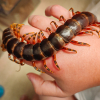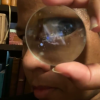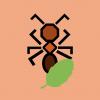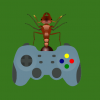So I noted in my journal that I had two deaths due to my mishandling. I'm usually VERY careful around them. Time line:
https://www.formicul...-ca02/?p=234278
I was doing Outworld maintenance when it happened, I was sad but also somewhat surprised at how easily they were killed.
EDIT: Just to clarify, these are just regular minor workers and this is about carpenter ants.
Ant #1, I was cutting the vinyl traveling tube to size and she was near it examining it. The ant didn't look hurt whatsoever, can't be the scissors nor the pinching of the tube due to the scissors squeezing in. Maybe the slight jolt?
Ant #2, accidentally gave her a light squeeze as I didn't see her sneak between my fingers. I immediately let go, her legs were a bit hurt and seconds later, died.
Thing was, both ants physically look almost perfectly intact. I didn't notice any 'smushed' parts, liquid leaking out (though I didn't confirm under a microscope or anything as I don't have one), twisted limbs, nothing. Head looked fine too.
I have these small, wild, 3mm or so dark ants that live in my area and I thought my carpenter ants, being SOOOO much bigger, would be a lot tougher. These 3mm ants, I can squeeze with a slight bit of force between my fingers and they'd still be alive (maybe injured but alive), but these big ants died from just that? Probably bigger body / gaster made them easier to squish but then again, I did mention they didn't look smushed at all.
It almost feels like they freaking died of a 'heart' attack though ants don't have a heart like we do.
Like they died of terror and shock ![]()
![]()
Edit: I guess I'm just mainly wondering if anyone notice the same with their medium large ants or are your ants tough as nails?
Like my ecto ants, I think they're tougher, I've dropped a plastic feeding tray full of water on one and she didn't come out injured, she came out fuming and ready to kill.
Edited by BleepingBleepers, February 13 2024 - 9:37 PM.

















